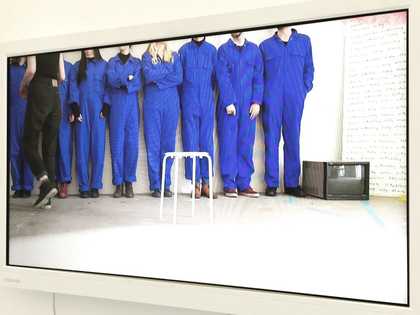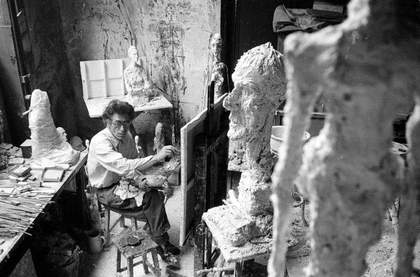Step inside a site for generating artistic behaviour, inhabit the ordinary daily routines of artists and see what their habits reveal. For four days Tate Exchange will become a space for collecting and generating and mimicking behaviour; a live and constantly changing inventory of small but significant dramas.
Boilersuit clad assistants will welcome and guide you as you are invited to respond to an Inventory of Behaviours, an improvised instruction manual. Devised by artists, the manual is based on their own behaviour in the physical, digital, or psychological spaces in which their art is made. You are invited to imitate or re-enact their rituals, traits and habits. Performances will be recorded and played back in the space and Twitter and Instagram will transmit the daily activities beyond the Gallery.
On Friday, join an open discussion from 3-5pm that brings invited speakers from a variety of disciplines – from art to psychology – to reflect on what the Inventory of Behaviours can tell us about the conditions of the production of artworks today.
This event is programmed by Bath Spa University, Kingston University and Freelands Foundation, Tate Exchange Associates.
About Freelands Foundation
Freelands Foundation is a charitable foundation focused on art and education inititaives.
They aim to support the broad arts ecosystem, over time affording many artists and organisations greater opportunities to create and to inspire, while advancing education from the ground up, enabling young people to actively engage with this creation and inspiration.
About the people behind this project
Inventory of Behaviours is developed by artists/senior lecturers Jo Addison (Kingston School of Art, Kingston University) and Natasha Kidd (Bath Spa University) in collaboration with Freelands Foundation.
Consistent with their individual practice-based research in to the conditions of making, the collaborative research of Addison and Kidd explores learning as form. Performances and live events are designed to stage the act of learning beyond the constraints of academia.


